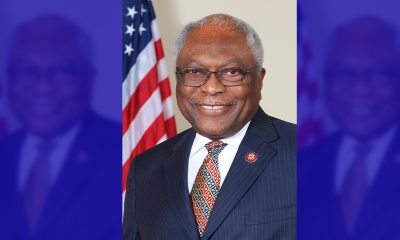Business
New Jersey, Leagues Renew Court Tussle Over Sports Gambling

New Jersey Gov. Chris Christie speaks during a news conference Thursday, Jan. 9, 2014, at the Statehouse in Trenton, N.J. A day after revelations that Christie’s administration may have closed highway lanes to exact political retribution, the prospective Republican presidential candidate is faced with what may be the biggest test in his political career. (AP Photo/Mel Evans)
DAVID PORTER, Associated Press
PHILADELPHIA (AP) — The fight over legalized sports gambling in New Jersey returned to a federal appeals court Tuesday, where attorneys for the state and the country’s major sports leagues spent nearly an hour parsing language in a decades-old federal statute and in recent court rulings.
At issue: Whether a 2014 New Jersey law repealing prohibitions against sports gambling violates the 1992 federal Professional and Amateur Sports Protection Act, which says states cannot “sponsor, operate, advertise, promote, license or authorize” sports betting.
A good portion of Tuesday’s oral arguments before the 3rd U.S. Circuit Court of Appeals focused on the meaning of the word “authorize,” and whether New Jersey did that when Gov. Chris Christie signed the law striking the betting prohibitions.
Attorneys from both sides endured sharp questioning from the court, which heard a previous incarnation of the case in 2013. In the ruling that followed that argument, the court said New Jersey couldn’t be prevented from repealing its sports gambling laws. The state seized on that language to write its 2014 law.
New Jersey is hoping sports gambling will reap tens of millions of dollars in revenue and help turn around the flagging fortunes of its casino and horse racing industries. The leagues have said expanding sports gambling will threaten the integrity of their games and lead to increased incidences of game-fixing.
Paul Clement, an attorney representing the NFL, NBA, NHL, Major League Baseball and the NCAA, said New Jersey wasn’t just repealing laws against sports gambling. He said the state would restrict sports betting to heavily regulated casinos and racetracks, limit bets to people over 21 and bar bets on in-state teams.
“A partial repeal that selects the favored venues and dictates who’s going to engage in sports gambling and on what games they’re going to bet on” amounts to state authorization, Clement said.
Arguing for New Jersey, Theodore Olson called it “Orwellian” that New Jersey would purportedly be in violation of federal law by allowing sports gambling in certain areas but would be OK if it allowed it everywhere. Besides, he added, “everything in New Jersey is regulated,” from muffler shops to beauty salons.
Ronald Riccio, a lawyer representing the New Jersey Thoroughbred Horsemen’s Association, told the judges that Monmouth Park, the only venue in the state to prepare to begin offering sports betting, would have its betting solely regulated by an independent group.
“It will also be under all state and federal consumer protection laws,” he said. “The only thing regulated is sports betting itself. The regulation is entirely up to the private sector as it sees fit.”
Though no casinos have committed to offering sports gambling while the case goes through the courts, the leagues contend that allowing sports gambling there amounts to the state playing a regulatory role because the casinos are state-licensed.
Judge Julio Fuentes queried Peter Phipps, a Department of Justice lawyer appearing in support of the leagues, on whether a sports betting operation would be functioning under a casino’s license if it hadn’t had to apply or pay a fee.
The judge likened it to driving a car with someone else’s license. “Isn’t a casino license not transferable? I can’t imagine it would cover somebody else’s sports betting operation,” Fuentes said.
The case dates back to 2012 when the leagues and NCAA sued the state to stop its initial sports gambling law from being implemented. The state has suffered court defeats since then and failed in an attempt to have the U.S. Supreme Court hear its constitutional challenge last year.
Attorneys on Tuesday acknowledged that the 2014 sports gambling law was worded explicitly to follow the 3rd Circuit’s 2013 ruling.
In recent months, NBA Commissioner Adam Silver and Major League Baseball Commissioner Rob Manfred have separately expressed some level of support for taking a new look at legalized sports betting outside Nevada, the only state to allow betting on individual games at betting parlors.
Copyright 2015 The Associated Press. All rights reserved. This material may not be published, broadcast, rewritten or redistributed.
Activism
Oakland Post: Week of April 24 – 30, 2024
The printed Weekly Edition of the Oakland Post: Week of April 24 – 30, 2024

To enlarge your view of this issue, use the slider, magnifying glass icon or full page icon in the lower right corner of the browser window. ![]()
Bay Area
State Controller Malia Cohen Keynote Speaker at S.F. Wealth Conference
California State Controller Malia Cohen delivered the keynote speech to over 50 business women at the Black Wealth Brunch held on March 28 at the War Memorial and Performing Arts Center at 301 Van Ness Ave. in San Francisco. The Enterprising Women Networking SF Chapter of the American Business Women’s Association (ABWA) hosted the Green Room event to launch its platform designed to close the racial wealth gap in Black and Brown communities.

By Carla Thomas
California State Controller Malia Cohen delivered the keynote speech to over 50 business women at the Black Wealth Brunch held on March 28 at the War Memorial and Performing Arts Center at 301 Van Ness Ave. in San Francisco.
The Enterprising Women Networking SF Chapter of the American Business Women’s Association (ABWA) hosted the Green Room event to launch its platform designed to close the racial wealth gap in Black and Brown communities.
“Our goal is to educate Black and Brown families in the masses about financial wellness, wealth building, and how to protect and preserve wealth,” said ABWA San Francisco Chapter President LaRonda Smith.
ABWA’s mission is to bring together businesswomen of diverse occupations and provide opportunities for them to help themselves and others grow personally and professionally through leadership, education, networking support, and national recognition.
“This day is about recognizing influential women, hearing from an accomplished woman as our keynote speaker and allowing women to come together as powerful people,” said ABWA SF Chapter Vice President Velma Landers.
More than 60 attendees dined on the culinary delights of Chef Sharon Lee of The Spot catering, which included a full soul food brunch of skewered shrimp, chicken, blackened salmon, and mac and cheese.
Cohen discussed the many economic disparities women and people of color face. From pay equity to financial literacy, Cohen shared not only statistics, but was excited about a new solution in motion which entailed partnering with Californians for Financial Education.
“I want everyone to reach their full potential,” she said. “Just a few weeks ago in Sacramento, I partnered with an organization, Californians for Financial Education.
“We gathered 990 signatures and submitted it to the [California] Secretary of State to get an initiative on the ballot that guarantees personal finance courses for every public school kid in the state of California.
“Every California student deserves an equal opportunity to learn about filing taxes, interest rates, budgets, and understanding the impact of credit scores. The way we begin to do that is to teach it,” Cohen said.
By equipping students with information, Cohen hopes to close the financial wealth gap, and give everyone an opportunity to reach their full financial potential. “They have to first be equipped with the information and education is the key. Then all we need are opportunities to step into spaces and places of power.”
Cohen went on to share that in her own upbringing, she was not guided on financial principles that could jump start her finances. “Communities of color don’t have the same information and I don’t know about you, but I did not grow up listening to my parents discussing their assets, their investments, and diversifying their portfolio. This is the kind of nomenclature and language we are trying to introduce to our future generations so we can pivot from a life of poverty so we can pivot away and never return to poverty.”
Cohen urged audience members to pass the initiative on the November 2024 ballot.
“When we come together as women, uplift women, and support women, we all win. By networking and learning together, we can continue to build generational wealth,” said Landers. “Passing a powerful initiative will ensure the next generation of California students will be empowered to make more informed financial decisions, decisions that will last them a lifetime.”
Business
Black Business Summit Focuses on Equity, Access and Data
The California African American Chamber of Commerce hosted its second annual “State of the California African American Economy Summit,” with the aim of bolstering Black economic influence through education and fellowship. Held Jan. 24 to Jan. 25 at the Westin Los Angeles Airport Hotel, the convention brought together some of the most influential Black business leaders, policy makers and economic thinkers in the state. The discussions focused on a wide range of economic topics pertinent to California’s African American business community, including policy, government contracts, and equity, and more.

By Solomon O. Smith, California Black Media
The California African American Chamber of Commerce hosted its second annual “State of the California African American Economy Summit,” with the aim of bolstering Black economic influence through education and fellowship.
Held Jan. 24 to Jan. 25 at the Westin Los Angeles Airport Hotel, the convention brought together some of the most influential Black business leaders, policy makers and economic thinkers in the state. The discussions focused on a wide range of economic topics pertinent to California’s African American business community, including policy, government contracts, and equity, and more.
Toks Omishakin, Secretary of the California State Transportation Agency (CALSTA) was a guest at the event. He told attendees about his department’s efforts to increase access for Black business owners.
“One thing I’m taking away from this for sure is we’re going to have to do a better job of connecting through your chambers of all these opportunities of billions of dollars that are coming down the pike. I’m honestly disappointed that people don’t know, so we’ll do better,” said Omishakin.
Lueathel Seawood, the president of the African American Chamber of Commerce of San Joaquin County, expressed frustration with obtaining federal contracts for small businesses, and completing the process. She observed that once a small business was certified as DBE, a Disadvantaged Business Enterprises, there was little help getting to the next step.
Omishakin admitted there is more work to be done to help them complete the process and include them in upcoming projects. However, the high-speed rail system expansion by the California High-Speed Rail Authority has set a goal of 30% participation from small businesses — only 10 percent is set aside for DBE.
The importance of Diversity, Equity and Inclusion (DEI) in economics was reinforced during the “State of the California Economy” talk led by author and economist Julianne Malveaux, and Anthony Asadullah Samad, Executive Director of the Mervyn Dymally African American Political and Economic Institute (MDAAPEI) at California State University, Dominguez Hills.
Assaults on DEI disproportionately affect women of color and Black women, according to Malveaux. When asked what role the loss of DEI might serve in economics, she suggested a more sinister purpose.
“The genesis of all this is anti-blackness. So, your question about how this fits into the economy is economic exclusion, that essentially has been promoted as public policy,” said Malveaux.
The most anticipated speaker at the event was Janice Bryant Howroyd known affectionately to her peers as “JBH.” She is one of the first Black women to run and own a multi-billion-dollar company. Her company ActOne Group, is one of the largest, and most recognized, hiring, staffing and human resources firms in the world. She is the author of “Acting Up” and has a profile on Forbes.
Chairman of the board of directors of the California African American Chamber of Commerce, Timothy Alan Simon, a lawyer and the first Black Appointments Secretary in the Office of the Governor of California, moderated. They discussed the state of Black entrepreneurship in the country and Howroyd gave advice to other business owners.
“We look to inspire and educate,” said Howroyd. “Inspiration is great but when I’ve got people’s attention, I want to teach them something.”
-

 Community2 weeks ago
Community2 weeks agoFinancial Assistance Bill for Descendants of Enslaved Persons to Help Them Purchase, Own, or Maintain a Home
-

 Activism3 weeks ago
Activism3 weeks agoOakland Post: Week of April 3 – 6, 2024
-

 Business2 weeks ago
Business2 weeks agoV.P. Kamala Harris: Americans With Criminal Records Will Soon Be Eligible for SBA Loans
-

 Activism2 weeks ago
Activism2 weeks agoOakland Post: Week of April 10 – 16, 2024
-

 Community2 weeks ago
Community2 weeks agoAG Bonta Says Oakland School Leaders Should Comply with State Laws to Avoid ‘Disparate Harm’ When Closing or Merging Schools
-

 Community1 week ago
Community1 week agoOakland WNBA Player to be Inducted Into Hall of Fame
-

 Community1 week ago
Community1 week agoRichmond Nonprofit Helps Ex-Felons Get Back on Their Feet
-

 Community2 weeks ago
Community2 weeks agoThe Year Ahead: Assembly Speaker Rivas Discusses Priorities, Problems

























































